The avant-garde, like a coastal Devonshire town that’s all cream teas on one side and cheap heroin on the other, can be enjoyable to visit but not necessarily somewhere you want to stay (you can reverse the tea and heroin in that sentence depending on your preference). I enjoy a bit of Albert Ayler or Meredith Monk as much as the next man, but the emphasis is on ‘a bit’ – more than an album at a time and my brain starts foaming.
So it’s a testament to the unrelenting quality of Colin Stetson’s third solo album that I’ve pretty much been listening to it on repeat for a week. Any periodic breaks have only occurred because it’s such an emotionally loaded piece of work, with an overdose potentially making you feel like you’ve swallowed a funeral.
A session musician who’s played with everyone from Tom Waits and David Byrne to Arcade Fire and LCD Soundsystem, Stetson’s weapon of choice is the bass saxophone, with some of his arsenal so big you imagine playing them being like attempting to blow a tune through Brian Blessed.
His dedication to the instrument has led to him developing an incredible circular breathing technique, which allows him to play multiphonics through both the keys and valves whilst simultaneously singing through the reed. ‘To See More Light’, the final part of his ‘New History Warfare’ trilogy, sees him producing noises that by his own admission he “couldn’t have possibly recorded before”, captured using a series of mics placed not just near the bell of the saxophone but on his own throat among other places. The effect is, quite frankly, extraordinary.
Nowhere more so than on the track ‘Hunted’. Here his formula is tweaked to its most potent potential, a mixture of throbbing bass tones, ebbing and flowing tremeloes and the occasional guttural roar, with his reed-filtered vocals floating serenely over the top. At times it’s almost violently powerful, while at others the sound softens, lulling you into an almost hypnotic comfort, before Stetson suddenly howls into his instrument like he can’t hold it in any longer with such force that it feels like being punched in the gut.
Completely free of any lyrical narrative, it’s nonetheless the most emotionally charged piece of music I’ve heard all year; the anguished yowls could almost be coming from a wounded animal or a bereaved mother rather than thirty-odd lbs of brushed brass. It’s an intensely expressive noise that creeps into your ears and blackens your heart, stopping only to spike your tear ducts along the way.
‘High Above A Grey Green Sea’ is equally incredible, although a tad less visceral. Stetson’s voice is more prominent, and the overall effect is beautiful and haunting; it’s the sort of music that might come rushing in with the wind while you’re standing on top of a cliff. Possibly before jumping off it.
The plethora of microphones means that Stetson’s breathing almost becomes an instrument in itself, and a huge influx of breath kicks off ‘In Mirrors’, a cautious piece dripping with tension that’s not unlike some of Krzysztof Komeda’s more sinister soundtrack work.
‘Brute’ is a different (and aptly-titled) beast altogether; Stetson may as well be playing a fucking chainsaw as loud percussive taps scuttle about like rats in the background. It descends into a nasty dark-funk strut before quickening again into the bastard son of free jazz and black metal, complete with gruff ‘doom claw’ bellowing courtesy of Bon Iver man Justin Vernon (yes, really).
After that, ‘Among the Sef’ is like someone opening the curtains of a darkened teenage bedroom, with the music in a major key and higher register while Glass-y repetitive phrases flutter around like confused geese. ‘Who The Waves Are Roaring For’, meanwhile, sounds like Stetson’s squeezed all of Sigur Rós into his saxophone.
The centrepiece is the fifteen-minute title track – the guy must have lungs like a bloody rhino’s – based around a beautiful phrase that circles itself like a dizzy drunk next to a dark canal, occasionally bending out of key while lurching dangerously towards the water. He also demonstrates the ability to hit bass notes lower than your toes (which, if you have your stereo equalized correctly, should start rattling like frozen peas in the empty skull of a dead mole around the eight-minute mark) before eventually ending on an almost comical, Penderecki-esque major chord.
The Vernon-sung gospel cover ‘What Are They Doing In Heaven’ is a bit of an anomaly, presumably there to frame Stetson’s ruminations about the “instinctual need we’ve always had of creating these dreams of afterlife, because we can’t conceive of our eyes being shut”. Then there’s ‘This Bed Of Shattered Bone’, a brief moment of gentle zen on an otherwise turbulent journey.
The final piece, ‘Part Of Me Apart From You’, is like listening to the dying breaths of a mighty beast, complete with the odd speaker-shattering death rattle. There’s an air about the major key resolution that almost suggests a final acceptance of death after a traumatic struggle.
Apparently the album is partially inspired by Stetson’s increasing perception of his own decreasing time on Earth. “Gone are the days of invincibility,” he puts it, “and shepherded in are days of mortality”. Maybe so, but the statements he makes here are as immortal as they come.
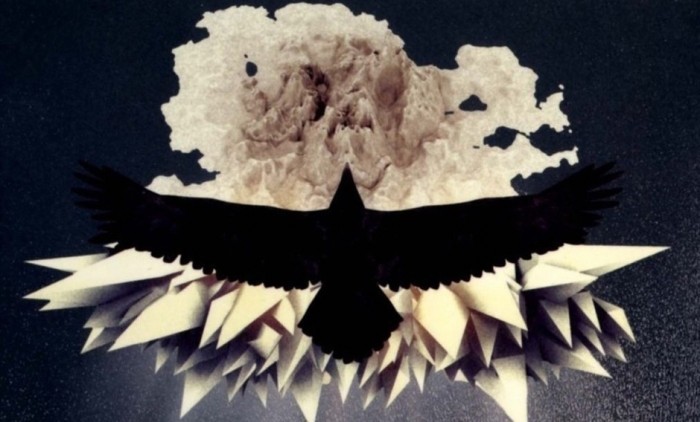
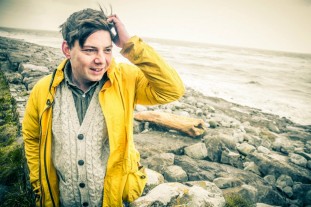

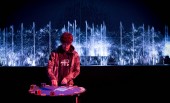
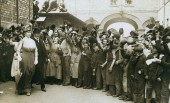
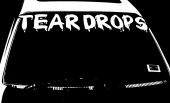
Follow us
Follow us on Facebook Follow us on Twitter Follow us on Google+ Subscribe our newsletter Add us to your feeds